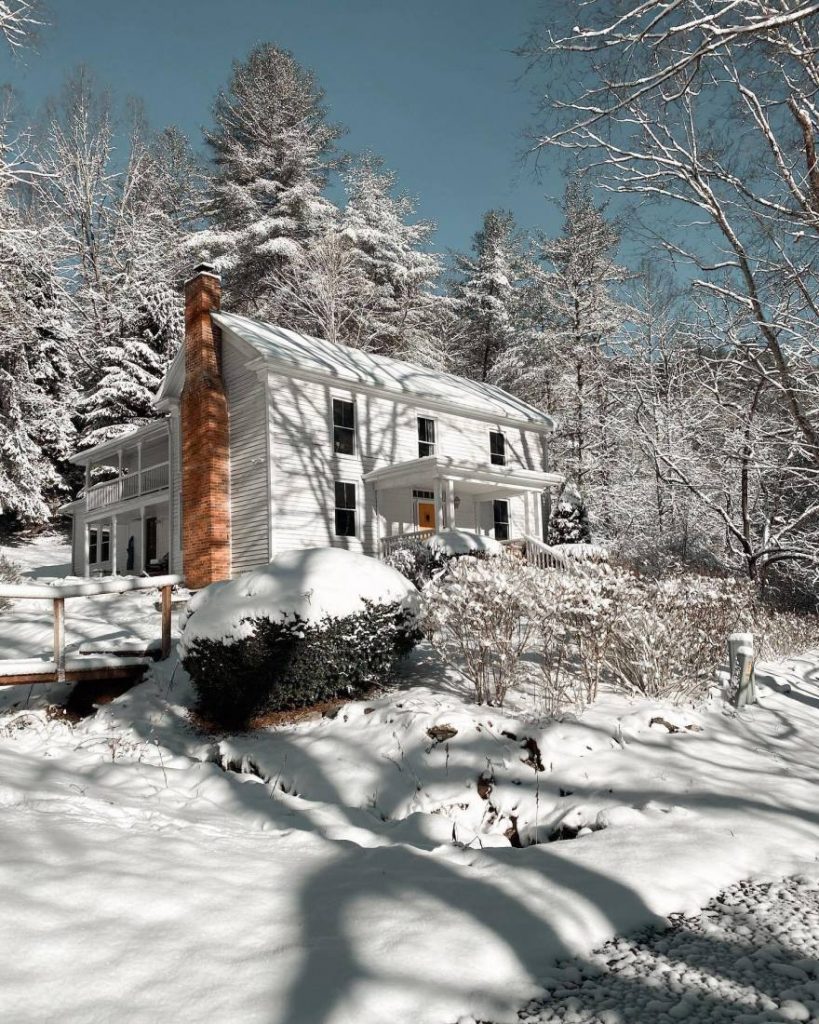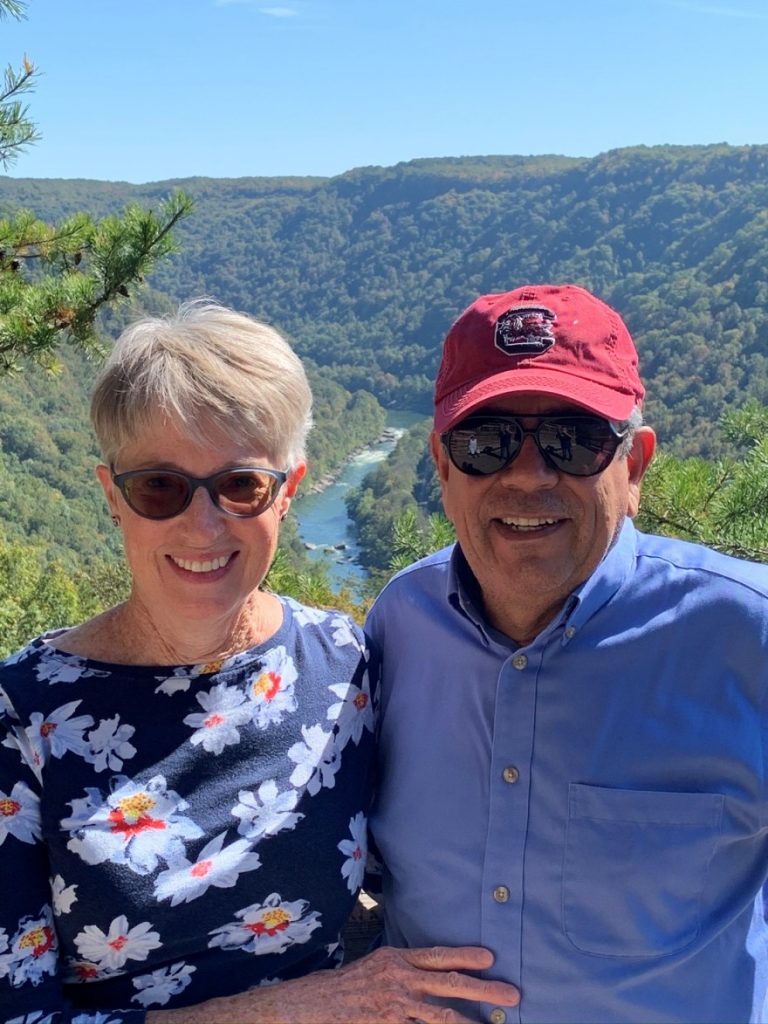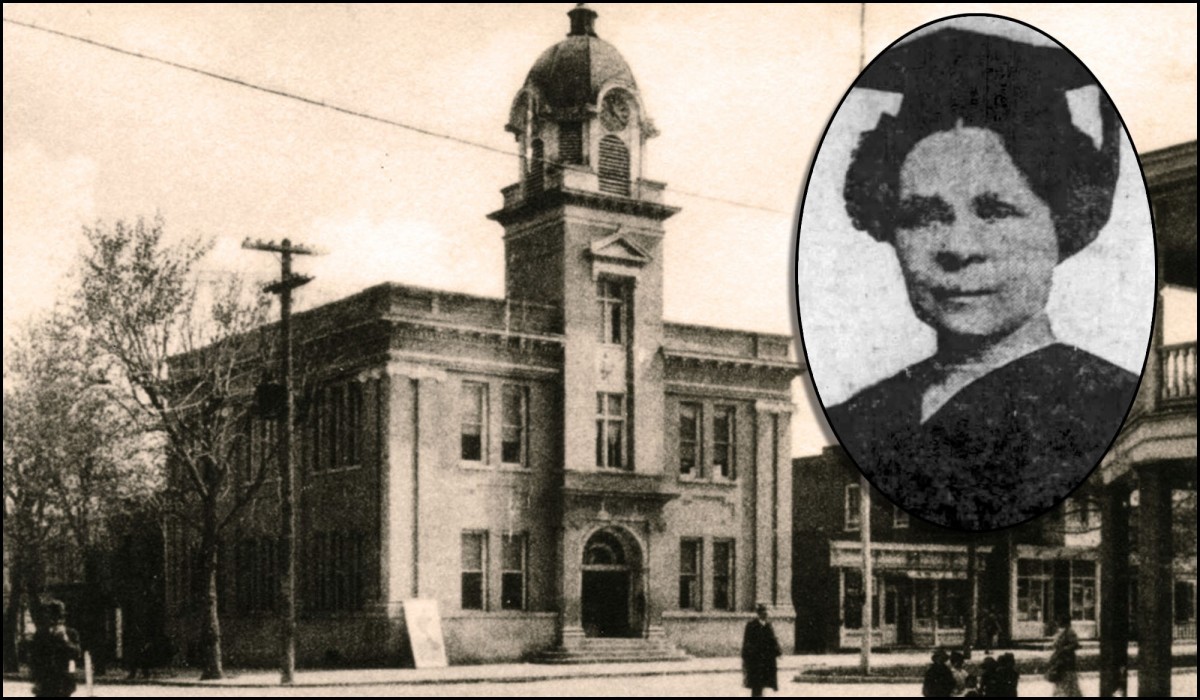Last summer, 34-year-old Bijoulea Finney and her husband Drew packed up everything they owned in Austin, Texas, and headed East. They’d just become the owners of a 75-acre homestead in southwest Virginia, outside Floyd. “I had never been to Virginia in my entire life,” Finney said. “And so we brought the property sight unseen, with only 12 photos on the listing.”
Finney and her husband are part of a trend that realtors are seeing across the country – folks itching to move into larger, less cramped houses, often looking to leave cities in place of more rural communities.

Finney’s mortgage is about the same as rent in downtown Austin. She runs her own video production business, and her husband works in the tech industry. They can both do their jobs remotely, and for a couple of years, they’ve been itching to get out of the city. “We were really interested in learning how to live off the land and be more sustainable, have a simpler life.”
At first, it was just this idea they had. Then in March 2020, they began putting their dream into motion, looking at real estate online. “I think when the pandemic hit, it really really got the fire lit under us to want to go and do this,” Finney said.
They had a list of things they knew they wanted. Preferably, not too close to an ocean, to avoid hurricanes. And not the Western U.S., with so much land vulnerable to forest fires. “And it was actually really hard to find something that was affordable, and had land, and had water and had internet in the United States,” Finney recalled.
When they drew circles around the swaths of land that were the least likely to be hit by climate disasters, they settled on someplace in Appalachia.

“Being more connected to nature has really helped my state of mind and my health, definitely. And we’ve only been here since June. So this is all still very new to me.”
She and her husband are still learning to live in a rural community. Finney learned how to use a woodstove, via Zoom, from the former homeowner. She says a few of her friends in Texas have been following her journey, and are interested in moving to a rural community, too. And she’s met at least three people in Floyd who have recently moved there from out of state.
“I do see a smaller kind of back-to-the land movement happening, like it did in the ‘60s and ‘70s,” Finney said.

A hundred miles north, in Lewisburg, West Virginia, Erin Gutierezz and her husband are getting settled into their house, which they purchased in January. “It’s twice as big as what our house was in Florida.”
Gutierezz was a teacher, and when the pandemic hit, she decided to retire early, since she has some medical complications. Then, tragedy hit. She and her husband lost their son in a motorcycle accident. Soon after, Gutierezz’s mother died from COVID-19. These losses made her question a lot about her life.
“I realized that you just don’t know in this life, what’s going to happen. You have to take those risks in and make it what you want it to be,” Gutierezz said.

She and her husband decided to move closer to their daughter and her family in Thomas, West Virginia. Their house in Florida sold the day it went on the market. Her husband drove to West Virginia, put a bid on a house he liked and they moved the next month. So far, she loves it. Lots of trees surround her house. Cows graze in a nearby pasture. Deer wander onto their property.
The town where they bought their home, Lewisburg, is one of the more popular destinations in the state, but for the first time ever, every geographic region in the state is experiencing a housing shortage, said Raymond Joseph, CEO of the West Virginia Association of Realtors. “People want to come to West Virginia right now. We’re seeing that all over the state.”
Many are from out of state, inspired by the pandemic to want more space. Some are buying second homes in West Virginia. “They look at this and they say, ‘hey, I can go buy some land, I can have a house. If I ever get in another situation like this where I’m on quarantine and jump in my car, I can drive to West Virginia go to my other house,’” Joseph said.
Many of these homebuyers are energized by access to hiking and forests where they can go four-wheeling, he added. They don’t want to feel cramped in a small apartment in the city, if a pandemic ever forces them to go into lockdown in the future.
But this real estate boom is putting the squeeze on some residents here, who are now feeling priced out of the housing market in West Virginia. Olivia Morris has been struggling to find her dream home in West Virginia’s New River Gorge. She said she wants to stay in her home state, but she’s questioning if she can afford it. She loves the area for its rock climbing, its swimming and hiking, and her dream was to save enough money to buy a small home in Fayetteville.

“You have a great downtown and main street, lots of different things to do, places to eat by just walking down the street or riding your mountain bike through the woods to get there,” Morris said.
In the past several years, Fayetteville’s housing market became pricey, at least compared to housing prices in most of West Virginia. A home in Fayetteville costs an average of $160,000; across the state, it’s $113,000, according to Zillow.
Then when the pandemic hit, Morris said it felt like things just went nuts. “And now you have people who are coming in and just like buying a property left and right, and it hurts.”
Now she’s looking at communities outside Fayetteville, hoping to find something in her price range – about $70,000. She understands why people would want to move to this area. A lot of her professional work is focused on helping more young people stay in the state.
“It is really good for West Virginia that people are moving here,” Morris said. “But it also is hard, and it’s like, two things can exist at the same time. And those are the two realities that are existing for me.”
This article was originally published by West Virginia Public Broadcasting.



